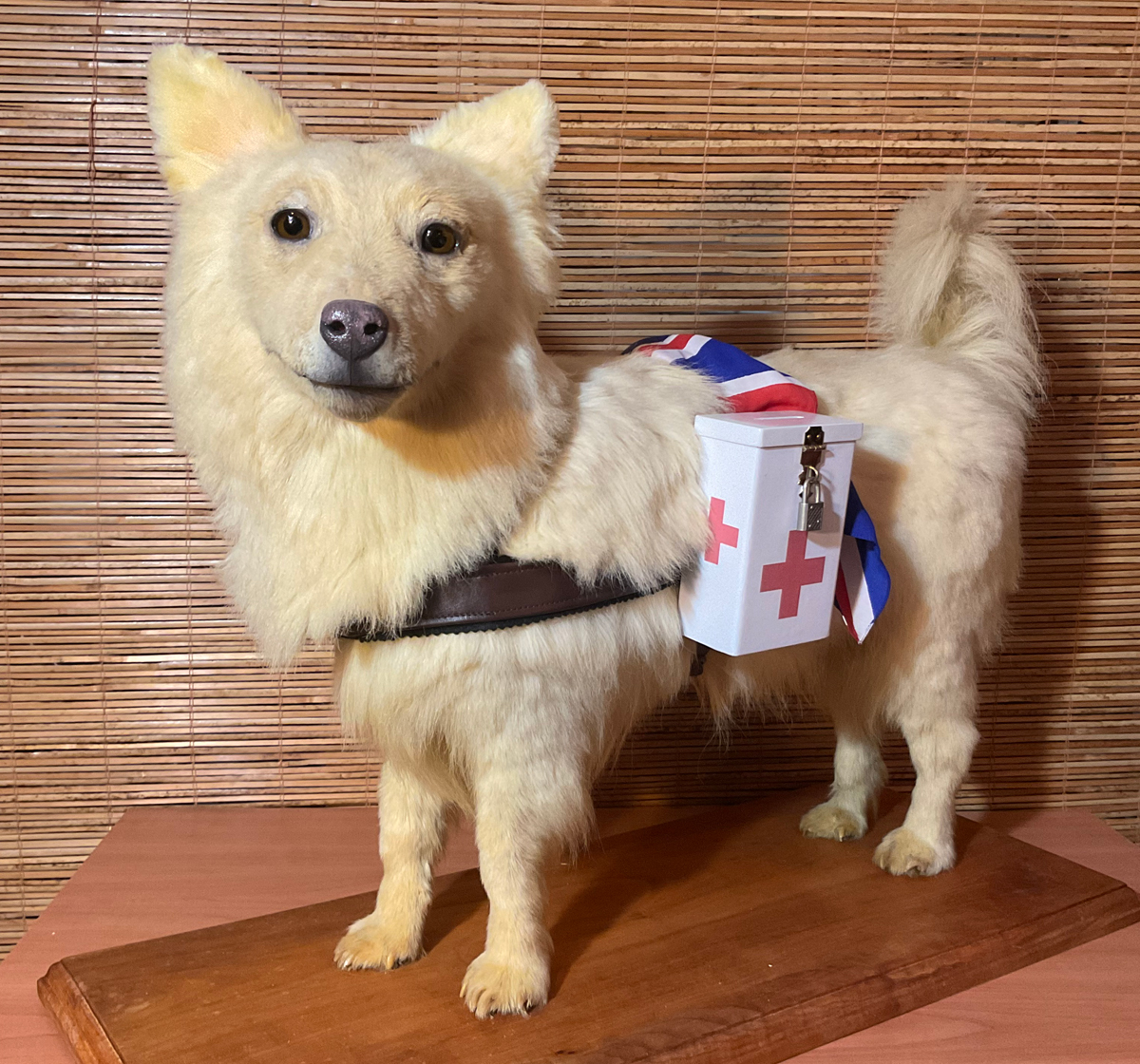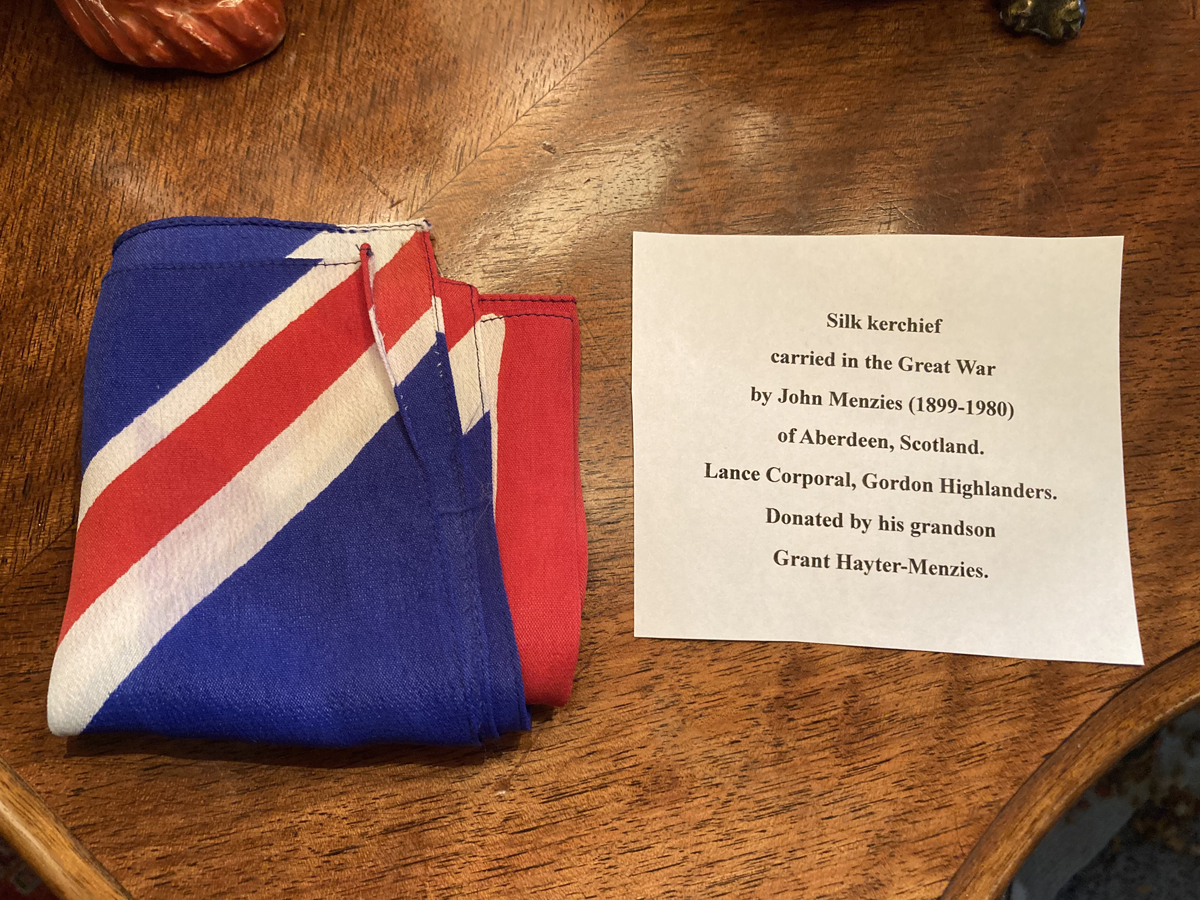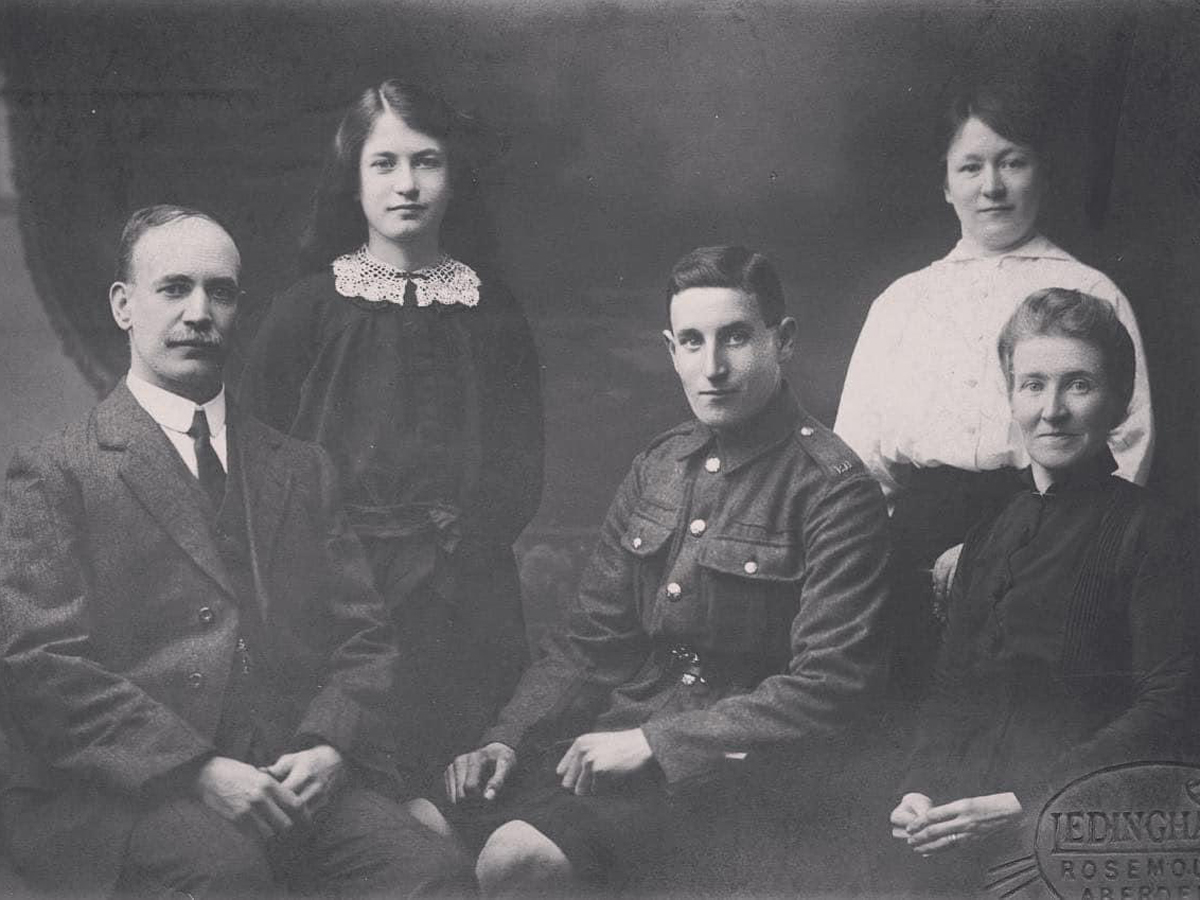Muggins, the historic pooch, remembered and restored
By Lookout Production on Feb 09, 2024 with Comments 0

Restored Muggins wearing John’s Union Jack kerchief. Photo: Peter Mallett, Lookout
Peter Mallett,
Staff Writer
—
Muggins, the First World War Red Cross fundraising dog which got lost and resurfaced around Victoria over the past century, has finally concluded his journey.
The iconic taxidermized purebred Spitz captured national headlines in 2022 when Captain (Navy) (ret’d) Paul Jenkins, Red Cross historian, revealed that Muggins, who had been hidden away in an attic for years, has been lost again.
“We assumed he had just been forgotten about and disintegrated over time,” said Jenkins.
The story intrigued a Sidney-based author who captured the life of the beloved mascot in a book, Muggins: The Life and Afterlife of a Canadian Canine War Hero.
“This little dog who was lauded by famous Canadian military officers and by the visiting Prince of Wales (the future King Edward VIII), served his country through another war and then slept in an attic for decades,” said author Grant Hayter-Menzies in reaction to the recent discovery.
Hayter-Menzies says his book builds on the research of Dr. Sylvia Van Kirk, a retired University of Toronto professor who first spearheaded the research on Muggins.
Who was Muggins
A large amount of money raised in Victoria to support the First World War troops came from Muggins. He earned a special place in the hearts of Victoria residents and even became a cult hero. He would wander through the streets, sat perched at his booth in front of the Empress Hotel or outside the Legislature, and residents and tourists alike would delight in filling up his collection tin to the brim.
Muggins was such a proficient canvasser that he deduced a fool-proof plan to seek out sizable donations from passengers in the casino of one of the ocean liners docked in Victoria Harbour.
“Muggins knew where the money was,” writes Hayter-Menzies. “He would circle the table bumping the men’s knees and nipping at them; then he would sit and bark; and if that didn’t work, he would jump on the table and sit on the cards until they put money in his collection box.”
According to the research, Muggins contracted pneumonia and died in 1920. His body was taxidermized and eventually assisted in fundraising for the Second World War.
By the late 1950s, the dog and his legacy had been largely forgotten.
Following the Second World War, the Army and Navy veterans building at Broughton and Wharf prominently displayed Muggins in its front window until a renovation project forced its closure. In 1955, Muggins was displayed in the living room of Colwood residents John and Elsie Citra and then moved to their attic when the family moved in 1960.
Dave Citra, their son, found Muggins in 2018 when he was selling his house and gave him to his friends Phil Sommerard and Jo-Ann Gallagher in View Royal. They contacted Jenkins, who confirmed his identity by the original taxidermy stamps on the bottom of the stand.
Jenkins says all fuss raised over the pup’s discovery was warranted.
“Muggins reflects a community coming together around something significant,” Jenkins said. “The money this white, fluffy, pint-sized lap dog raised was used to support the needs of sick and injured soldiers and sailors overseas and in Canada.”
According to Jenkins, Muggins probably surpassed all other individual fundraisers in the provincial capital’s First World War fundraising, with an astounding $21,000 in collections. He notes this sum would be equivalent to over $300,000 today.
 Restoration of Muggins
Restoration of Muggins
After he was discovered, the Citra family donated Muggins to the Red Cross. Hayter-Menzies agreed to pick up the restoration tab because Muggins’ condition wasn’t optimal.
After the makeover, restorer Max Bergman of Dulchis Mortem in Mission, B.C., recreated a collection outfit to portray how Muggins looked back in the early 20th century using an old postcard. A Union Jack kerchief was added to Muggins’ collection box and harness to match the postcard.
The kerchief has its own legacy: it came from the war chest of Hayter-Menzies’ grandfather, Lance Corporal John Menzies (1899-1980). He carried the kerchief on the battlefield of France in the First World War as a member of the United Kingdom’s Gordon Highlanders.
Government House is delighted to feature Muggins as a temporary on-loan display this summer.

Grant Hayter-Menzies’ grandfather was born in Aberdeen in 1899, died in California in 1980. Here he is with his parents after returning from war. Photo supplied.
Filed Under: News Release • Top Stories
About the Author:





